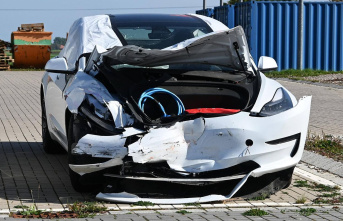Fuel prices in Germany are falling. With the end of the temporary tax cut, they rose sharply on September 1, but since then there has been a downward trend, according to data from the ADAC on Wednesday. On Tuesday, Super E10 dropped below the two euro mark on a nationwide daily average and cost 1.992 euros per liter. That is 3.1 cents less than on September 1st. Diesel was 2.157 euros per liter, 1.6 cents less than last Thursday.
"Prices have been falling slightly for a few days - especially for E10. Let's hope it continues like this, but I wouldn't put my hand on fire," said ADAC fuel price expert Christian Laberer. "Here it depends on whether, in view of the higher prices, there is now greater competitive pressure from customers. Every driver can also contribute to this by deliberately buying cheap fuel." In addition, he hopes that the Federal Cartel Office will present the results of its investigation of the mineral oil market as soon as possible, said Laberer. Overall, the fuels are clearly too expensive.
The temporary reduction in fuel tax was 35.2 cents per liter for premium petrol and 16.7 cents for diesel. It was valid from June 1st to August 31st.
Biggest gap ever
"Prices suddenly rose from August 31 to September 1, but not by the full amount of the tax relief that was lost," said Laberer. However, a significant part of the increase was already anticipated in the second half of August. "In the case of diesel in particular, the increase over the entire period is even greater than the abolished tax could explain."
In addition, the price difference between diesel and E10 has again increased significantly. Diesel is currently 16.5 cents more expensive. If you calculate out the fuel tax reduction that has taken place in the meantime, this is the largest gap of all time. The two fuels - adjusted for the tax cut - were still about the same at the beginning of August. And usually, diesel is even significantly cheaper than E10 because it is taxed at a lower rate. On average over the past ten years, the gap was a good 15 cents. Only because of the upheavals in the Ukraine war had Diesel E10 overtaken.
The difference between the fuels can be explained to some extent by the fact that natural gas is being replaced by diesel in industry, said Laberer. "However, the extent of the surcharge cannot be justified. Especially since we now had half a year to adjust to the end of diesel imports from Russia, which were initially an important price driver for diesel."









